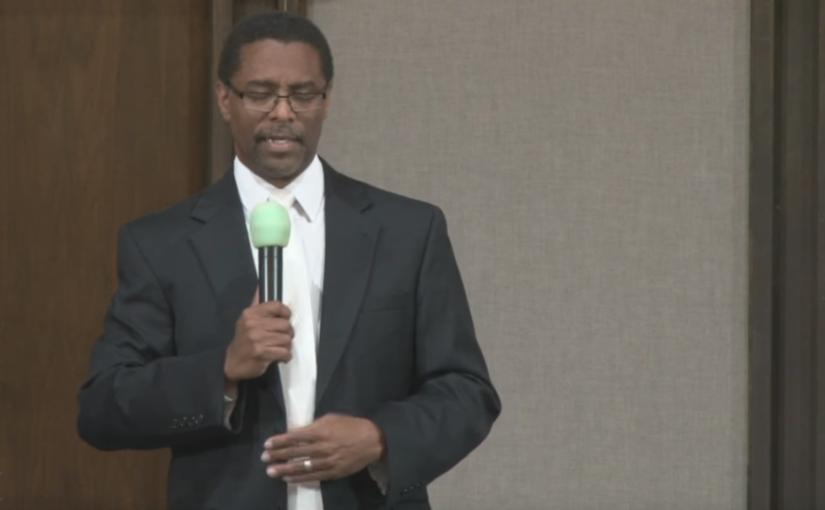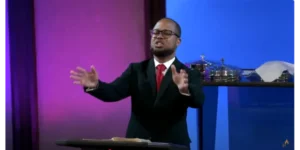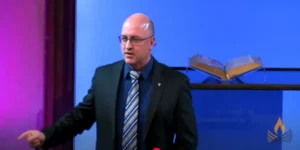We bid farewell to Jonah with an epilogue that drew some interesting parallels from Jesus’ story of the prodigal son.
Jonah’s story is also included in the Koran when concludes, “If only there had been a city that believed and profited by its belief as did the people of Jonah!” Based on what we’ve learned about Jonah, that phrase from the Koran could more accurately been written as: “If only Jonah could have believed and profited by his belief as did the people of Nineveh!”
And that was the point Jesus was making when he said to the scribes and Pharisees: “The men of Nineveh will rise up in the judgment with this generation and condemn it, because they repented at the preaching of Jonah; and indeed a greater than Jonah is here.” Matt. 12:41.
Just as there was a sharp contrast (Unrepentance and repentance) between Jonah and the pagan sailors, and Jonah and the pagan Ninevites, the same contrast still existed between the Jews of Jesus’ time and the men of Nineveh. And they were just as hostile towards Jesus as was Jonah towards God.
This is brought to light at the beginning of Luke 15. Rewind to verses 1-2. “Now the tax collectors and ‘sinners’ were all gathering around to hear him. But the Pharisees and the teachers of the law muttered, ‘This man welcomes sinners and eats with them.’” Jesus is making the descendants of Jonah very angry because he is showing mercy and honor to the wrong people.
So, with the same patience God showed Jonah as he seethed in anger, Jesus now patiently tells a story about a lost sheep, a lost coin, and two lost boys. We focused on the last of these stories, so rewind to Luke 15:11-32.
The first son is openly defiant and rebellious against the father. The older boy stays at home…the obedient one. The prodigal “comes to his senses” when he hits bottom and “repents.” Instead of continuing West to the far country (Tarshish), he changes direction and heads back to his father’s house—to the table. That’s all repentance is—a change of heart; a change of direction. The first way prodigals get to the table is through repentance.
It doesn’t mean he understood everything or had his theology right. Does the boy understand who his father is? No. He thinks he knows his father’s heart and plans to get back into his good graces through works (see verses 18, 19). But prodigals are brought to the table only by grace, not by works. (See vs. 20.)
According to etiquette and cultural demands, the prodigal is expected to beg his father’s pardon and make amends. The boy knows this, too. But they don’t know the father. (See vss. 22-24.)
The celebration begins but not everyone is in the mood to celebrate. The older brother hears the party and finds out his prodigal brother has returned and that the party is in his honor. How does he react? Like the Pharisees who Jesus is talking to…and like Jonah when Nineveh was seated at the table of grace. “The older brother became angry and refused to go in.” vs. 28
The older brother’s refusal to go in to the feast was the same as Jonah’s refusal to accept the favor God showed the Ninevites. By not going in, the older brother was saying, “I will not be a part of this family.
The brother is particularly upset about the cost. The most expensive delicacy of all was the fattened calf so when the father kills the fattened calf we know that meant the entire village would have been at that feast.
And it is here we find the most important way prodigals are brought to the table. As the guilty son is reconciled to the father and finds life, an innocent victim must sacrifice its life. Throughout scripture, the atoning, substitutionary death of the Savior was illustrated through the death of an animal, including a calf/bull on the Day of Atonement. (Rewind to Leviticus 16 for more details.) Jesus was that Sacrifice for the atoning of sins. The father in the parable uses the same word that in the Greek OT was used for the bulls of the Day of Atonement. The “fattened calf” was killed, a symbol of the atonement between father and son, and the celebration could begin! Prodigals are brought to the table of grace through the atoning blood of Jesus.
There is no reconciliation or celebration without the shedding of blood. How can God be merciful and just at the same time? Not without paying a high price, and He paid the highest price ever paid so that we prodigals may have a place at the table! In the cross of Christ the tension between mercy and justice is resolved. “Mercy and truth are met together; righteousness and peace have kissed each other.” Psalm 85:10. (See also 1 Peter 1:18-19.)
The story is about two kinds of lostness – you can escape God through morality and religion as much as you can through immorality and irreligion. The “bad” son gets saved; the “good” one is lost (as far as we know). The lover of prostitutes is at the table, and the man of moral excellence is outside. Prodigals are brought to the table by faith. (See Romans 9:30-32.)
And just like Jonah’s story, this one also ends in a cliffhanger. Unfinished. We don’t know if Jonah or the older brother repents and comes around to God’s way of loving. Have you? Have you come to the table of God’s lovingkindness? The Mercy seat? And most importantly, how have you come? By law or by grace? Aren’t you glad our God welcomes sinners and eats with them?
Pastor Randy Maxwell




